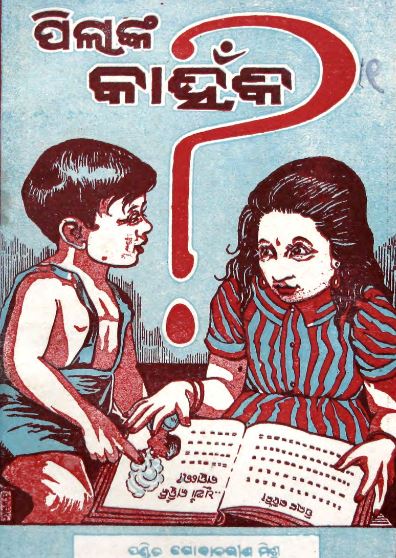Pilanka Kahinki, written by the esteemed author Godabarisha Misra and published in 1950, holds a special place in Odia literature. This unique book presents a series of questions and answers, offering insights not only into the culture and customs of Odisha but also into broader philosophical and moral queries. Misra’s work is not just a literary achievement; it serves as a vital educational tool that engages readers, particularly the youth, in critical thinking while exploring the rich tapestry of Odia language, culture, and values.
At first glance, the format of Pilanka Kahinki sets it apart from traditional narratives. By adopting a question-answer format, Misra creates an engaging dialogue that invites readers to ponder and reflect. Each chapter addresses various themes—ranging from social norms, ethics, and familial relationships to existential inquiries—encouraging young minds to seek answers not only in the text but also within themselves. This interactive nature of the book makes it particularly appealing to readers of all ages, especially children, as it fosters curiosity and encourages active participation in the learning process.
One of the remarkable features of Pilanka Kahinki is its deep dive into the cultural ethos of Odisha. Through well-crafted questions, Misra prompts discussions about local customs, traditional practices, and festivals, providing readers with a vivid portrayal of Odisha’s rich heritage. For instance, questions pertaining to the significance of certain festivals or the importance of respecting elders showcase the values ingrained in Odia society. Misra artfully bridges the past with the present, ensuring younger generations understand their roots while navigating contemporary challenges.
Beyond cultural exploration, many questions in Pilanka Kahinki delve into philosophical themes that provoke contemplation. Questions about happiness, purpose, and morality encourage readers to engage in self-reflection. Misra’s thoughtful answers often challenge societal norms, urging readers to think critically about accepted values. For example, a question about the essence of true friendship may lead to a discussion about loyalty versus self-interest, prompting readers to consider the complexities of human relationships.
Pilanka Kahinki is significant in an educational context as well. Its format makes it an excellent resource for teachers and parents looking to instill critical thinking and ethical reasoning in children. The book can be utilized in classrooms to spark discussions, promote debates, and enhance the learning experience. By encouraging students to formulate their questions and explore their answers, Misra inadvertently fosters a generation of inquisitive learners who are unafraid to challenge established notions.
Books Info
| Books name | Pilanka Kahinki / ପିଲାଙ୍କ କାହିଁକି |
| Author | Godabarisha Misra |
| No Of pages | 69 |
| Publisher | Sri Nrusingh prashad Mishra |
| Publication | 1950 |
| Printed At | Anandgraphics O Printographics , Cuttack |
| Distributor | NA |

